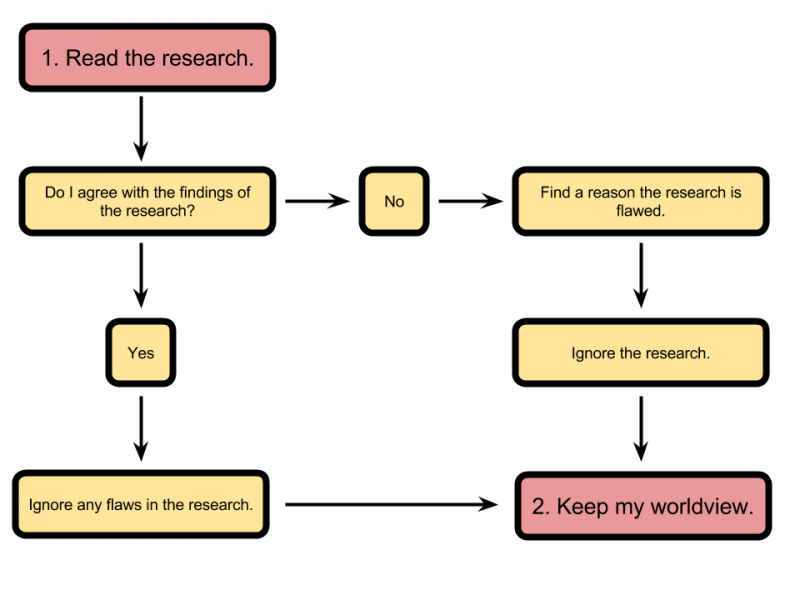
I’ve been working hard to read research carefully, both research with which I agree, and research with which I disagree. I still struggle with my tendency to overlook the flaws in research with which I agree, and to find fatal flaws in research with which I disagree.
This does not mean that I should ignore research; only that I continue to be careful to read all research with a critical eye, and discuss the findings with other people. My suspicion is that norming about what research means with people who have a wide variety of view-points might reduce my tendency toward personal bias.
h says:
1. Why read research whose conclusions you agree with unless you want to criticize (constructively or otherwise) the methodology ?
2. Why read research whose conclusions you disagree with unless a) you hope to be able to trash the methodolgy or the logic or b) you are not afraid of having your world view battered, or at least disturbed a little ?
Only a few years ago I read a lot on Global Warming and the historical evidence. What little there was was not convincing. Now we see the sea levels rising, so the evidence is different and more believable, so I am not so sceptical now. Are you so attached to your world view?
June 2, 2014 — 3:27 pm
Howard Phillips says:
forgot to click
June 2, 2014 — 3:30 pm
David Wees says:
I read all sorts of research. I’m just able to recognize that much of the time, I fall into the trap above. I have to actively work to avoid thinking about research in this way. Maybe I am alone in this respect. Maybe everyone else who reads research is able to do it in an unbiases and critical way.
June 3, 2014 — 5:37 am
Howard Phillips says:
I doubt it!
June 3, 2014 — 7:07 am
David Wees says:
(me too)
June 3, 2014 — 9:52 am
Maria Droujkova says:
If you use research for practical purposes, it should (theoretically) be easier to overcome biases. For example, travel is not compatible with the flat Earth theory, however much you love it. If you use research for development and design, with live users, you’ll grab what works and discard what does not. Right?
June 9, 2014 — 5:43 pm
David Wees says:
Even here there is some bias, but basically this is part of the point of the inquiry structure my project supports. There is (hopefully) less bias when the outcomes are smaller and easier to see.
June 9, 2014 — 9:55 pm